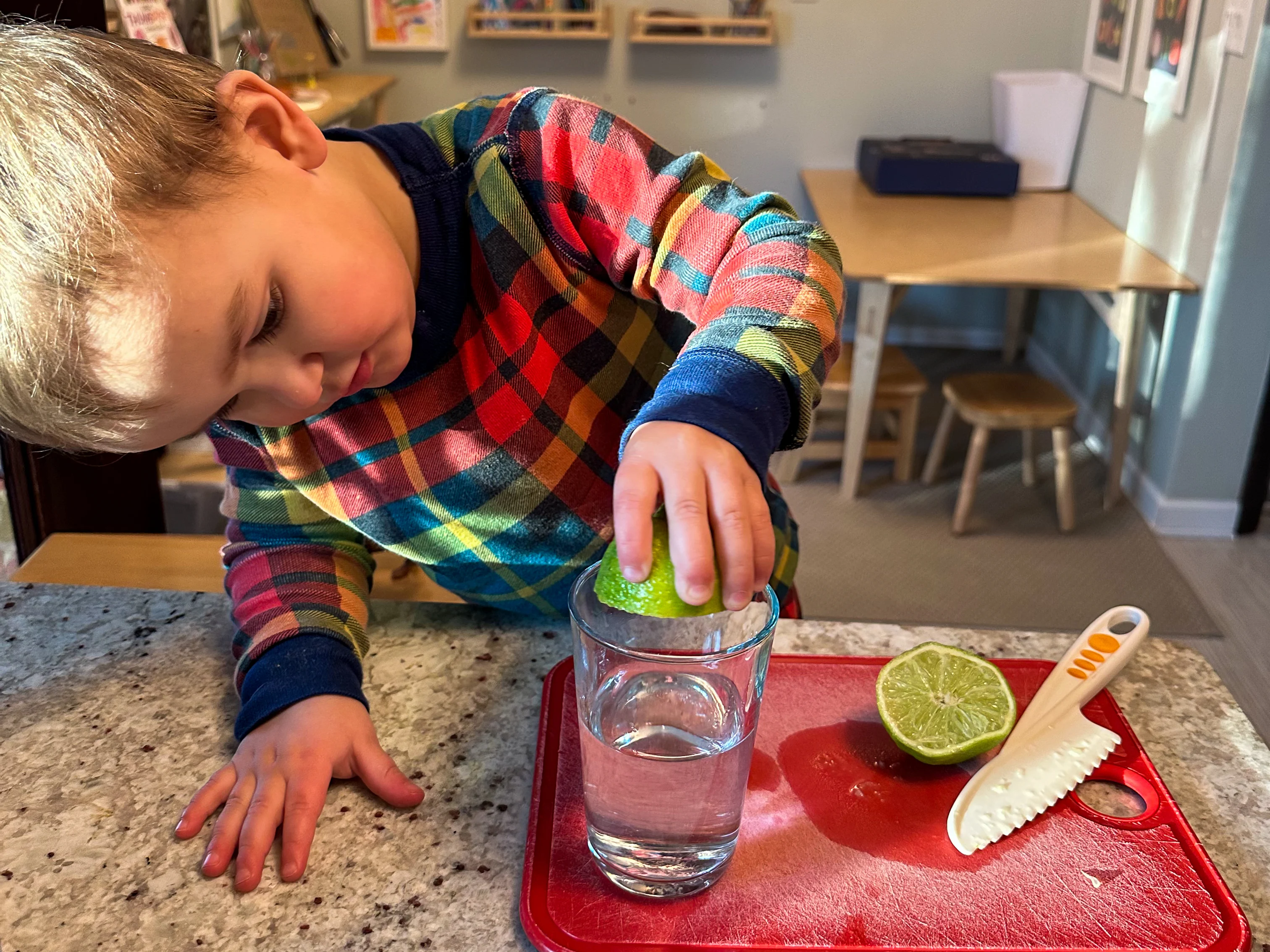Concentration in Montessori Toddlers
"Through concentration important qualities of character develop. When the concentration passes, the child is inwardly satisfied, he becomes aware of his companions in whom he shows a lively and sympathetic interest." Maria Montessori, Maria Montessori Speaks to Parents
That's what we are starting to see here with Theodore. Movements are slowing down. Things are being repeated and he is finding himself more and more in a still and deeply concentrated state. At 3-years-old he is making the shift to the conscious absorbent mind, and with it his work changes. The other day, I brought his lunch to him and he didn't even notice for 20 minutes because he was so interested in building a puzzle over and over again.
How Should Montessori Parents Respond to Concentration
"Praise, help, or even a look, may be enough to interrupt him, or destroy the activity. It seems a strange thing to say, but this can happen even if the child merely becomes aware of being watched. After all, we too sometimes feel unable to go on working if someone comes to see what we are doing. The great principle which brings success to the teacher is this: as soon as concentration has begun, act as if the child does not exist. Naturally, one can see what he is doing with a quick glance, but without his being aware of it." Maria Montessori, The Absorbent Mind
Then, protect that concentration. Protect it from your own curiosity (and maybe need for control) but also from siblings, pets, and other distractions of daily life in your Montessori home. This really becomes such a big work for us as parents as our children move into this phase of their development.
With Teddy in the lunch situation, it looked like me going ahead and eating my lunch next to him as normal. Not interrupting, engaging, or otherwise making a fuss. It was just acting how I would if he wasn't there at all. When he was done with the puzzle, he looked up and engaged me. Then, I once again interacted.




